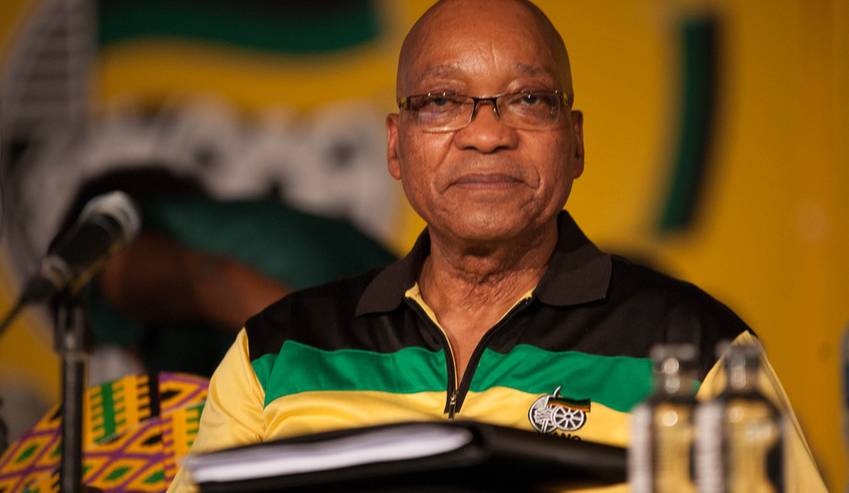This material belongs to: SABC News.
President Jacob Zuma says his government is committed to rooting out the scourge of corruption to restore investor confidence.
This is as a group of civil society organisations under the banner of “Future South Africa” mounts pressure for him to step down from high office.
On Monday night, Zuma addressed a gala dinner hosted by the African Farmers Association of South Africa (Afasa) in Boksburg on the east Rand.
Prominent South Africans including politicians, business executives and human rights activists have called for a nationwide shutdown on August 8, a day before the much awaited debate of the motion of no confidence against President Zuma at the National Assembly in Cape Town.
Lack of action by the crime busting unit, the Hawks, and the National Prosecutions Authority to probe alleged “State capture” and those implicated in the leaked Gupta-emails has been met with fierce criticism from various civil society organisations.
They have accused the controversial Gupta family of exerting undue influence on government and using their proximity to the President and some cabinet ministers to loot state resources.
Addressing members of the mainly black agri-business organisation, Afasa, the President outlined government measures to curb corruption, which he admitted was impacting negatively on the image of the country.
Zuma says, “We remain fully committed to clean governance. Law enforcement agencies have been authorised to deal decisively with corruption and crime in both the private and public sectors. If certain individuals or companies have been involved in criminal activities, this information must be provided to the police so that investigations can be undertaken. Nobody is above the law in our country.”
Focusing on the state of the economy, Zuma has warned that the weak consumer demand and low growth and investment levels will exacerbate the high levels of unemployment.
According to government estimates economic growth is expected to be below 0.5%.
Zuma has also admitted that the faltering economy was draining public finances.
“Lower economic growth means lower revenue and more pressure on the fiscus. However, it is possible to turn the situation around. It requires determination, unity and the willingness of all sectors to pull together. Government recently announced some actions that we will undertake to improve the implementation of a number of important existing ANC economic policy interventions. If we implement these interventions successfully, which are linked to our Nine Point Plan we can breathe some life into the economy.”
Meanwhile, Zuma has acknowledged the role played by the Agricultural sector in contributing towards economic development as well as food security and job creation.
He has told delegates attending the Afasa gala dinner that a productive agriculture sector has the potential to transform rural areas into sustainable economic centres.
Zuma has, however, urged the white dominated commercial agri-business to embrace government led initiatives to transform the sector.
“Let me emphasise that that such transformation does not mean destroying what we have and what works. It also does not mean that we want to destroy commercial agriculture. We fully support all our farmers, black and white, established and emerging. Transformation is aimed at allowing the entry of black people to participate meaningfully in the economy, and in this case, the food production value chain.”
Zuma has pledged government support for smallholder farmers and applauded the youth for demonstrating a keen interest in the acquisition of land for productive purposes.
The ANC lekgotla held at the weekend called for the provision of preferential access for emerging farmers into large government markets such as hospitals, schools or prisons.
 info@anticorr.media
info@anticorr.media

